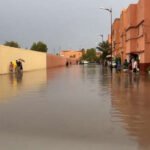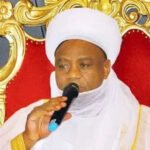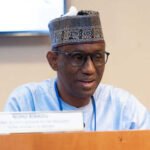The Teachers Registration Council of Nigeria (TRCN) has revealed that 70 percent of teachers in private schools in southwest Nigeria are unqualified.
Development Diaries reports that the Registrar of the TRCN, Professor Josiah Ajiboye, declared that the unqualified teachers are cheaters.
The southwest states in Nigeria are Lagos, Ogun, Oyo, Osun, Ondo, and Ekiti.
Revealing that 70 percent of the unqualified teachers lacked the prerequisites to be registered by the council, Ajiboye stated that a large number of teachers in Nigeria have never been exposed to training and have been using outdated equipment for illustration.
This is a disturbing revelation because the quality of education in a country is a reflection of the quality of teachers.
It is no longer news that Nigeria’s education system lacks quality teachers and this has severely impacted the delivery of quality education in the country.
In its 2018 National Personnel Audit (NPA) on public and private basic education schools in Nigeria, the Universal Basic Education Commission (UBEC) noted that 73 percent of teachers in public schools were qualified while the qualified ones in private schools were 53 percent.
For a private school to begin operations, it must be licenced by the government of the state in which it is located. The Ministry of Education in the state is expected to enforce strict guidelines for the employment of teachers, for assurance of quality.
That 70 percent of teachers in private schools in southwest Nigeria are unqualified is an indication that the government has failed in the area of quality assurance.
‘They look into infrastructure, safety precautions, down to what [children] eat’
A counselor with an international school in the Federal Capital Territory (FCT), Abuja, who pleaded anonymity, spoke to Development Diaries about the thorough process of quality assurance in the school.
‘Because we are an international school, we belong to two bodies; Middle States Association (MSA) and Council of International Schools (CIS)’, the counselor said.
‘So every five years they come from different parts of the world, like six to eight people from different parts of the world, and they have different domains that they look into.
‘They look into your infrastructure, safety precautions, down to what the [children] eat; if they are able to express themselves; because if you say you are an international school, they want to be sure you are not releasing [children] who cannot express themselves, who cannot ask questions.
‘They also have one-on-one meetings with people: they speak with parents, teachers, the students as well’.
If an international school in Nigeria can put so much effort into quality assurance, why are Nigerian educational authorities unable to ensure the same standards?
Federal and state governments in Nigeria must begin to lay down the marker for education by investing appropriately in the sector. One of the steps would be to make teaching truly professional and ensure that only qualified teachers take charge of classrooms in schools across the country.
Photo source: USAID in Africa




